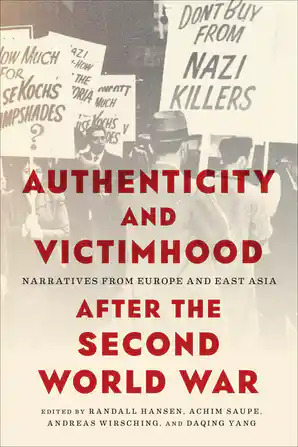The shadow of the Second World War was filled with many terrible crimes, crimes, such as genocide, forced migration and labour, human-made famine, forced sterilizations, and dispossession, that. None of these atrocities were new, but they all occurred on an unprecedented scale.
Authenticity and Victimhood after the Second World War examines victim groups constructed in the twentieth century in the aftermath of these experiences. The collection explores the concept of authenticity through an examination of victims’ histories and the construction of victimhood in Europe and East Asia. Chapters consider how notions of historical authenticity influence the self-identification and public recognition of a given social group, the tensions arising from individual and group experiences of victimhood, and the resulting, sometimes divergent, interpretation of historical events.
Drawing from case studies on topics including the Holocaust, the siege of Leningrad, American air raids on Japan, and forced migrations from Eastern Europe, Authenticity and Victimhood after the Second World War shows demonstrates the trends towards a victim-centred collective memory as well as the interand the role trends play of in memory politics and public commemorative culture.
Achim Saupe ist wissenschaftlicher Koordinator des Leibniz-Forschungsverbunds "Wert der Vergangenheit" am Leibniz-Zentrum für Zeithstorische Forschung Potsdam (ZZF).
Achim Saupe is the coordinator of the Leibniz Research Alliance "Wert der Vergangenheit" at the Leibniz Centre for Contemporary History (ZZF).

